Comparisons
Is A Smart Car The Answer?
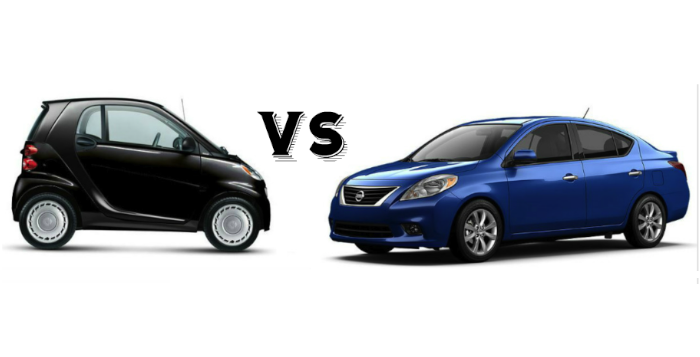
That depends on the question. Probably not, though.
A lot of people hate smart cars. In fact, there exists not one but two Facebook pages dedicated to the hatred of smart cars: “I Hate Smart Cars!” and the slightly more emphatic, “I HATE Smart Cars!!!!!!!!!” Comments range in tone and tenor, but the general idea is that they’re “soooo annoying” and the people who drive them are self-satisfied “tosers” (He may have meant losers).
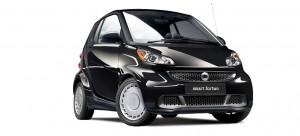 If you’re considering getting one, though, you’re probably not among the haters and are already well-versed on what haters gonna do. What you need is some practical information about whether what’s good about smart cars is actually any better than a small, inexpensive sedan.
If you’re considering getting one, though, you’re probably not among the haters and are already well-versed on what haters gonna do. What you need is some practical information about whether what’s good about smart cars is actually any better than a small, inexpensive sedan.
To that end, we’re going to compare the 2014 smart fortwo pure 2-door coupe, smart’s most basic model, with the 2014 Nissan Versa S+ 4-door sedan. We’ve gone with the S+ because it’s actually closer to the smart in price than the base S model, and its 2-speed CVT gives it a more competitive MPG rating.
Smart fortwo pure vs Nissan Versa S+
| Smart fortwo 2-door coupe | Nissan Versa S+ | |
|---|---|---|
| MSRP | $13,270 | $13,790 |
| MPG city/hwy/combined | 34/38/36 | 31/40/35 |
| Max. luggage volume | 12.0 cu. ft. | 14.9 cu. ft. |
| Exterior Length/Width | 106.1"/61.4" | 175.5"/66.7" |
Price: About five hundred bucks difference. In the big picture, not too significant. On a monthly payment scale, negligible. If you’re drawn to smart cars under the assumption that they must be cheap, you might want to think again.
Fuel economy: This one feels particularly embarrassing. The Versa even tops the smart in highway rating. Whaaaat.
Cargo capacity: It doesn’t really come down too solidly for anybody, and it’s the Versa’s fault for not having a folding back seat. Who doesn’t have a folding back seat nowadays? Weird. What the Versa does have is a back seat with space for three people, and while that might not be an everyday necessity for you, it might be nice as an option. Again, for the same price.
Size: People really like to talk about the smart car’s advantage when it comes to parking. If you do a lot of parallel parking in abnormally tight spots, then for sure the length difference is going to be your best friend. But when it comes to parking lots, ramps, and garages, that width discrepancy of about five inches isn’t going to give you much of an edge.
—
So, if the smart car isn’t considerably better on price, gas mileage, or the average parking situation, what exactly is the benefit? Here are some reasons you might still want to get one:
You just love them. Some people simply adore all things small. You probably also prefer sliders to full-sized burgers, and you wash them down with those runty little soda cans. You love it when things are wee. Nothing to be ashamed of.
You want people to talk to you about your car. If you drive a smart car, then you are the owner of one of those things that make people want to come up and talk it out with you. Like a frisky little puppy or one of those hats that dispenses beer. This will probably be fun for a while. Will it be fun for a year, or when you’re having a shitty day? Maybe if the people are always well-groomed and polite. But they won’t be.
You deliver pizza. A lot of food delivery joints seem to get great use out of smart cars these days. They’re easy to customize with wraps that make them a constant source of advertising-on-wheels, and they’re just the right size for a guy and a pie.
You only have street parking at your apartment and workplace and the two are a short city drive apart and you have a phobia of public transportation. Fine, get a smart car.
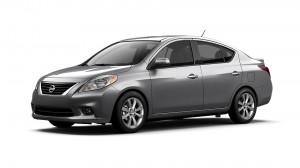 Bottom line: The need for cheap cars with great mileage is a real thing, but smart cars hardly impress in either area compared with small sedans on the market right now, making them a questionable choice for most people.
Bottom line: The need for cheap cars with great mileage is a real thing, but smart cars hardly impress in either area compared with small sedans on the market right now, making them a questionable choice for most people.
Winner of the CarDebate: Nissan Versa

Comparisons
What Are the Most Powerful Sports Cars of 2022?
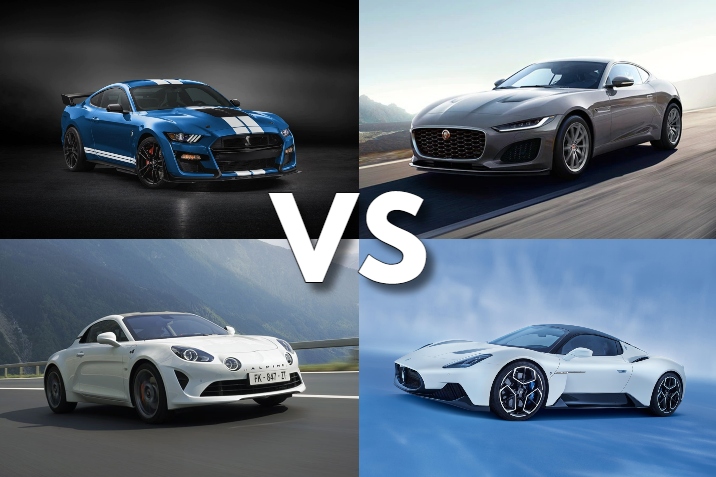
When shopping for a new car, many of us have our own list of needs and wants. While these lists will vary from person to person, one factor that some drivers like to enjoy is engine power. Many automotive brands have sports cars that will help you satisfy your need for speed. However, which model will provide you with the most power and speed? Which one should you buy in 2022? In this post, we will be looking at the most powerful sports cars of 2022. Keep reading to find out which one you should bring home from the dealership.
Which Models Will Satisfy Your Need for Speed?
In no particular order, these models, both new and returning, are great options to consider when shopping for a new sports car in 2022.
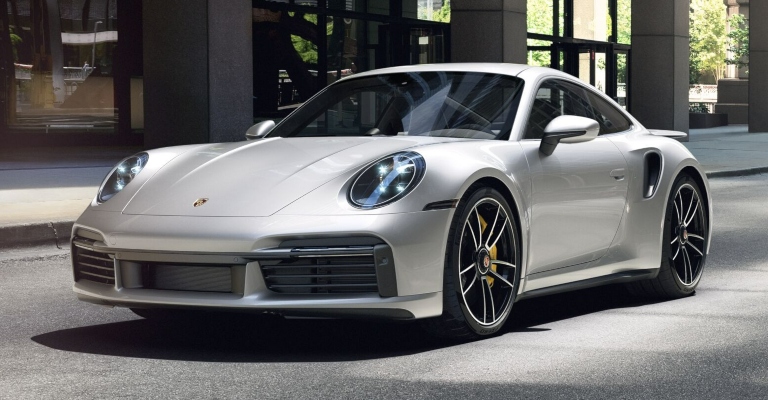
Porsche 911
A longtime favorite of sports car drivers, the Porsche 911 continues to provide an exhilarating driving experience after 60 years. The standard Carrera model can accelerate from 0-60 mph in approximately 4.2 seconds and reach a top speed of 182 mph. If you’re looking for a little more power, the Turbo S model has an acceleration time of 2.7 seconds and a top speed of 205 mph.
Maserati MC20
After 18 years of being off the market, the Maserati MC20 came back with a statement. Powered by a 3.0-liter twin-turbo V6 engine with 621 hp, the MC20 can accelerate from 0-62 mph in about 2.9 seconds and reach an impressive top speed of 202 mph. In addition to these specs, the MC20 also has F1-dervied technology which helps prove that it is still a strong force in the sports car segment.
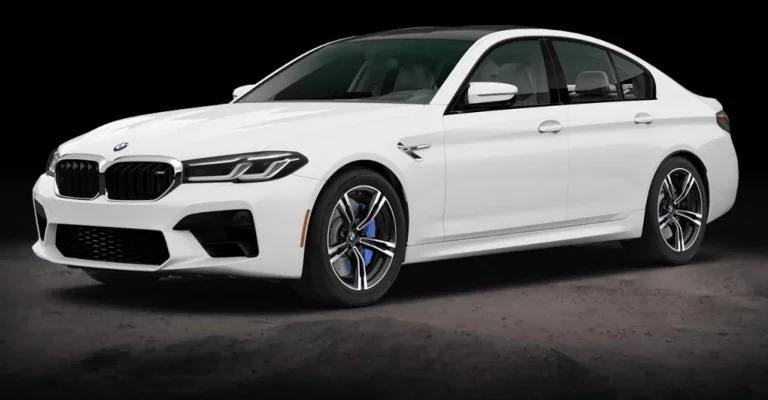
BMW M5 CS
This sports car takes the excitement that you enjoy with the BMW M5 and takes it to the next level. Although powered by the same V8 engine, the M5 CS has upgrades that provide it with an extra 10 hp, or a total of 626 hp. This model can go from 0-62 mph in 3.0 seconds and make its way up to a top speed of 189 mph.
Alpine A110
This two-seater sports car is designed as an homage of the original 1960s A110 and is the reintroduction of the Alpine brand after its long hiatus. The A110 is powered by a turbocharged 1.8-liter engine that can be tuned to offer either 248 hp or 288 hp. Paired with a seven-speed dual-clutch automatic gearbox, this model can accelerate from 0-60 mph in 4.5 seconds or in 4.4 seconds for the A110 S version.
Jaguar F-TYPE
The Jaguar F-TYPE has faced success since it first entered the market thanks to its powerful performance and affordable price tag. The F-TYPE P-450 model comes with a 5.0-liter V8 engine that provides up to 444 hp and 428 lb-ft of torque. This version achieves a top speed of 177 mph and an acceleration time of 4.4 seconds. The F-TYPE R version provides drivers with 575 hp, 516 lb-ft of torque, a top speed of 186 mph and an acceleration time of 3.5 seconds.
Ford Shelby Mustang GT500
The Ford Mustang has been a longtime favorite among drivers for its powerful specifications and driver-focused driving experience. However, the Shelby Mustang GT500 is the most powerful in Ford production history with 760 horsepower and 625 lb-ft of torque. The power of this sports car continues with its 0-60 mph acceleration time of 3.3 seconds and a top speed of 180 mph.
Comparisons
Acura NSX and Dodge Viper Highlight New-Age Vs. Tradition In Supercar Segment

Acura recently released specs on the much-anticipated 2017 version of the NSX. Meanwhile, the word from Dodge appears to be that the Viper could be discontinued after 2017. But even though the two vehicles may be headed in separate directions, consumers are no doubt still going to want to compare the two. (more…)
Comparisons
Which Of The Square Vehicles Out There Is Sponge-Worthy?
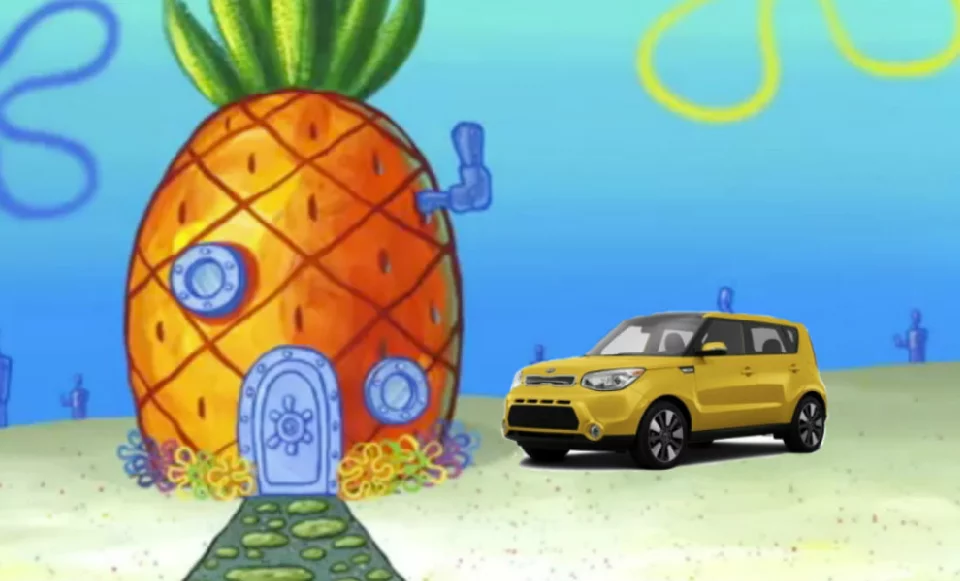
If you are even a casual fan of Spongebob Squarepants, then you probably know that the show’s subject has had a heck of a time earning his driver’s license. While Spongebob likely has some mental limitations that lead to this, I maintain that there is another reason altogether – he’s driving a boat with wheels on it…at the bottom of the ocean. (more…)
-
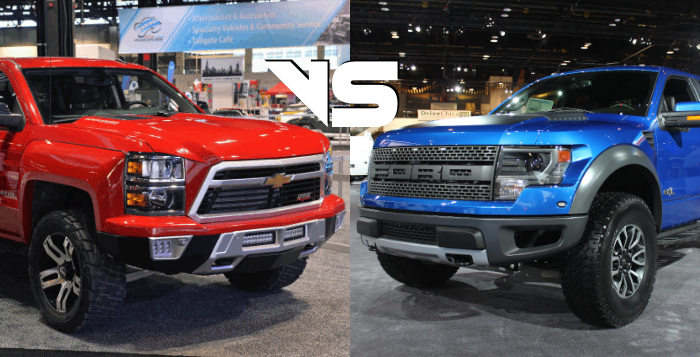
 Comparisons10 years ago
Comparisons10 years agoFord Raptor Has No Reason To Fear The Reaper
-
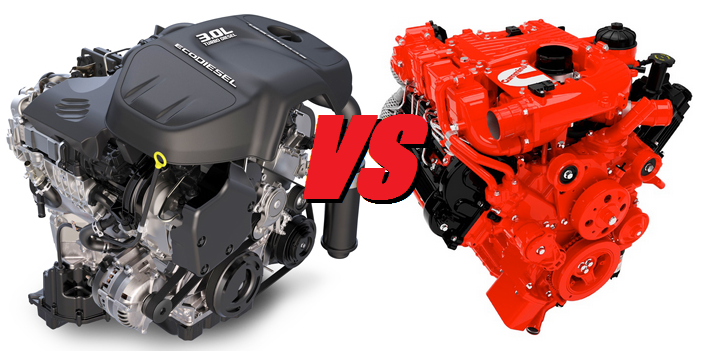
 Comparisons10 years ago
Comparisons10 years agoNissan Titan Diesel Gets Ram 1500 EcoDiesel’s Sloppy Seconds
-

 Comparisons10 years ago
Comparisons10 years agoSettling The Debate: Pony Cars vs. Muscle Cars
-
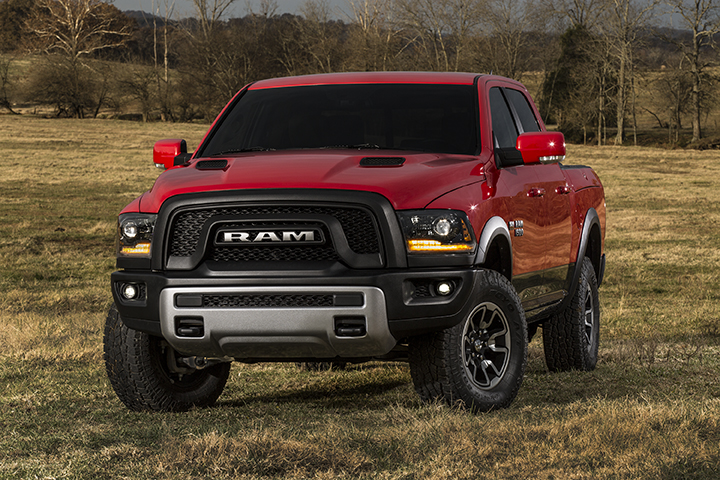
 New Cars9 years ago
New Cars9 years agoThe Ram Rebel Is Coming – But Is It Raptor Competition?
-
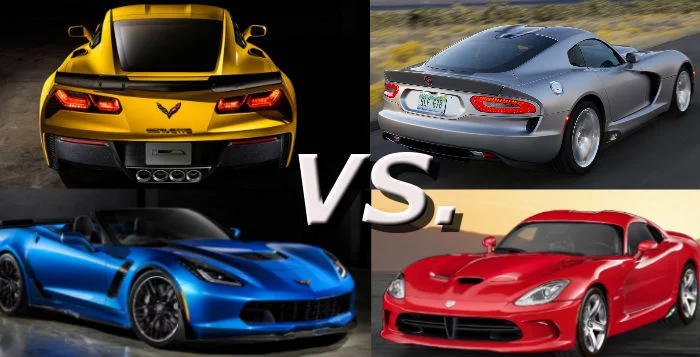
 Comparisons9 years ago
Comparisons9 years agoDid The 2015 Corvette Defeat The Viper In The Battle For Supercar Supremacy?
-
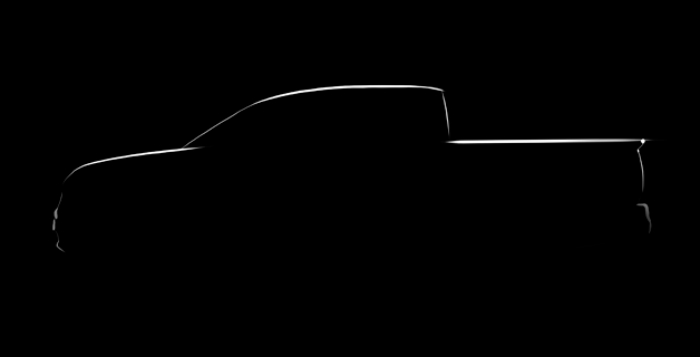
 New Cars9 years ago
New Cars9 years ago2016 Honda Ridgeline Will Need More Than Design Tweaks To Succeed
-
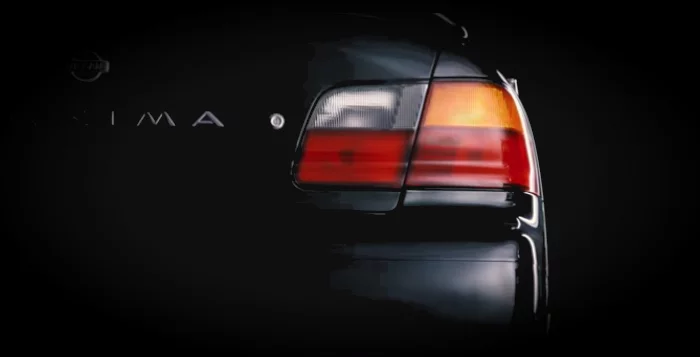
 Hot News9 years ago
Hot News9 years agoNissan Unveils Overhauled Maxima in Genius “Luxury Restored” Sequel
-
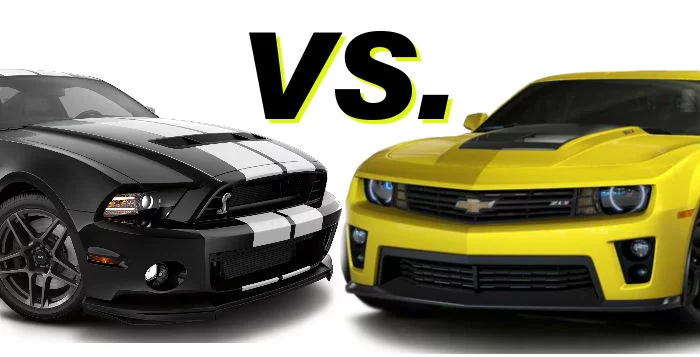
 Comparisons9 years ago
Comparisons9 years ago2016 Ford vs Chevy Battle Could Be The Best Yet
